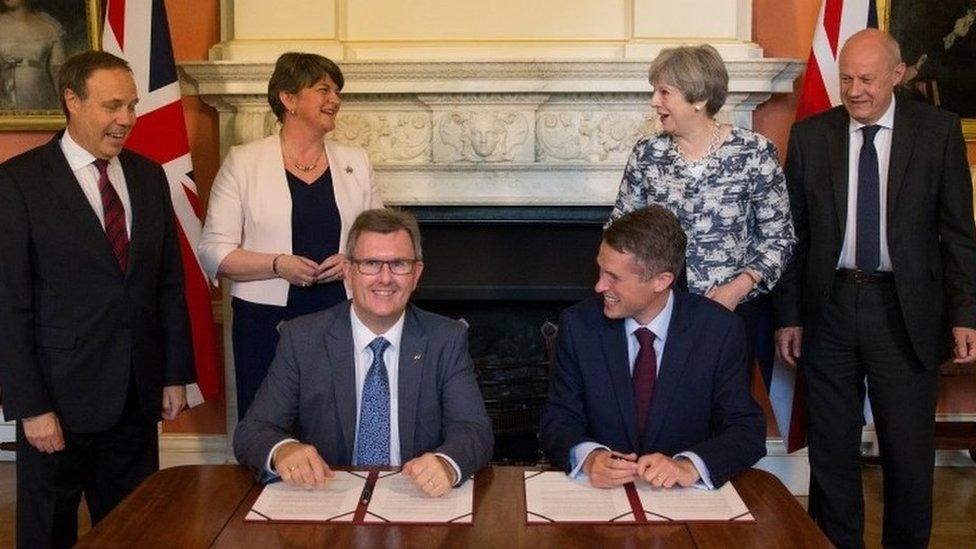Michael Gove in 'strong position for DUP support'
- Published
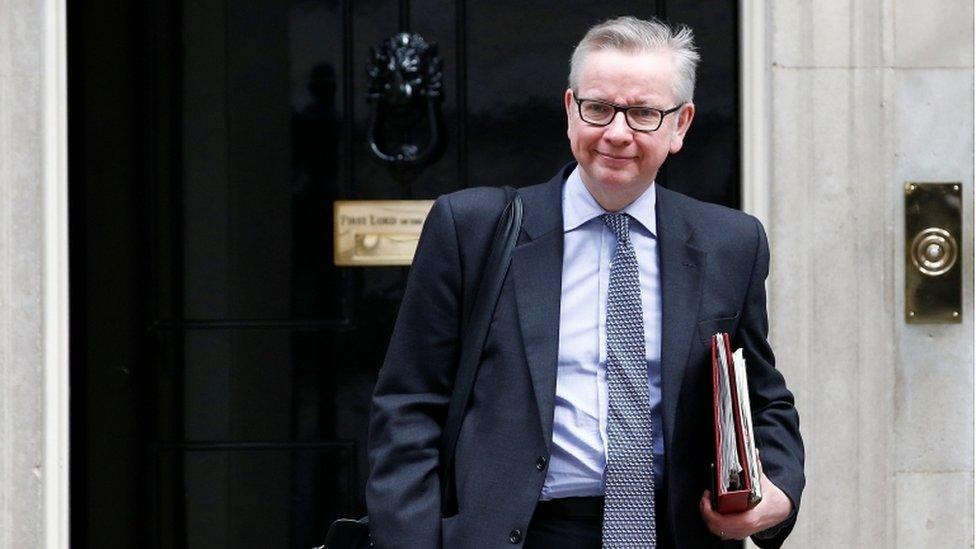
Michael Gove is one of several candidates seeking his party's nomination to become leader
Michael Gove has said he is in a "strong position" to command the support of the DUP in his bid to become prime minister.
The Conservative leadership contender said he was a "unionist to my bootstraps".
The DUP is crucial to keeping the Tories in power through the confidence-and-supply pact signed in June 2017.
Mr Gove also said, if he was prime minister, he would personally lead talks to restore devolution, external.
Speaking on the BBC's Andrew Marr Show, Mr Gove was asked about comments he made almost two decades ago, when he criticised the Good Friday Agreement which ended decades of violence in Northern Ireland.
In 2000, he wrote a paper, entitled Northern Ireland the Price of Peace, which said he believed the IRA could have been defeated and the Good Friday Agreement was a "capitulation" by then Prime Minister Tony Blair.
Mr Gove defended his decision to be "very critical of terrorism in the past", adding that was why he is "in a very strong position to command the support of our confidence-and-supply partners".
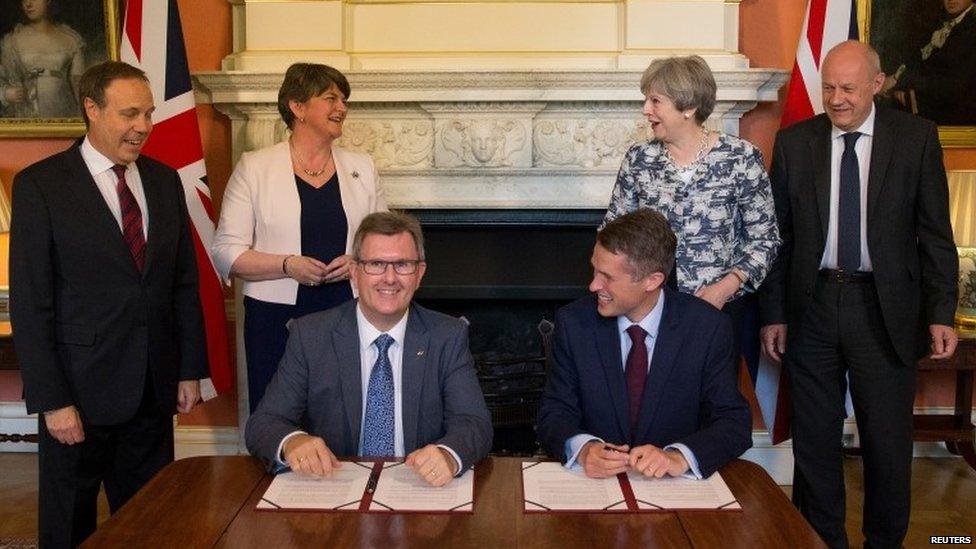
DUP MP Jeffrey Donaldson and Tory Chief Whip Gavin Williamson signed the pact between the DUP and Conservatives in 2017
"I was critical of some of the ways in which Tony Blair handled the peace process," he said.
"But it is also the case we have had 20 years of peace in Northern Ireland and in my job I have worked with Irish government ministers to ensure gains of the peace process."
Mr Gove is currently the environment secretary and has held two other cabinet roles - education secretary and justice secretary.
The Tory MP added that he wanted to see a Brexit deal that would strengthen the union of the United Kingdom.
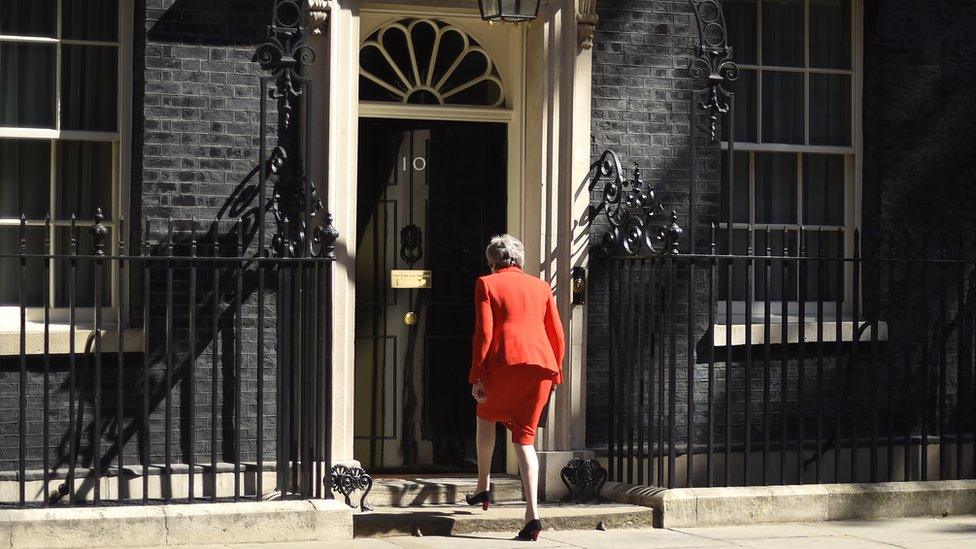
Outgoing Prime Minister Theresa May will remain in office until a successor is chosen
The Democratic Unionist Party (DUP) said it would meet with various Conservative candidates to assess who it could work with to deliver a Brexit deal that works for the whole of the UK.
DUP leader Arlene Foster recently met Home Secretary Sajid Javid in Belfast.
However, the party has also insisted that it is not a matter for it to say who leads the Conservative Party.
'Stormont lock'
The DUP has repeatedly opposed the government's EU withdrawal agreement due to concerns it could split Northern Ireland from the rest of the UK, through the backstop.
The backstop is the insurance policy to maintain an open Irish border unless and until another solution is found.
The DUP and other Brexit-supporting MPs have called for the backstop to be scrapped or replaced by "alternative arrangements" in the withdrawal deal.
Mr Gove said he wanted to see a "full stop to the backstop" and that he favoured the use of the so-called "Stormont lock", that could potentially limit the backstop, if it ever took effect.
In May, Prime Minister Theresa May, external said: "The Northern Ireland Assembly and Executive will have to give their consent on a cross-community basis for new regulations which are added to the backstop."
It is possible that unionists could use a blocking mechanism known as the petition of concern.
What would happen if Stormont did veto any addition to the backstop is not entirely clear.
Meanwhile, Foreign Secretary Jeremy Hunt, another contender for the Conservative leadership, said he had conversations with German Chancellor Angela Merkel during the D-Day commemorations where she was open to looking at new solutions for the Irish border issue in Brexit negotiations.
Speaking to Sky's Sophy Ridge, he said "I had a conversation with Angela Merkel this week" and "she said of course with a new prime minister we would look at new solutions".
Mr Hunt said that an "intelligent border" would be required in Northern Ireland and it was important to "ensure it's deliverable".
When asked whether his predecessor in the Foreign Office, Boris Johnson, had been a good Foreign Secretary, he said he "was a marmite character" and there "were other European ministers who found him hard to deal with" because of his views on Brexit.
- Published8 June 2019
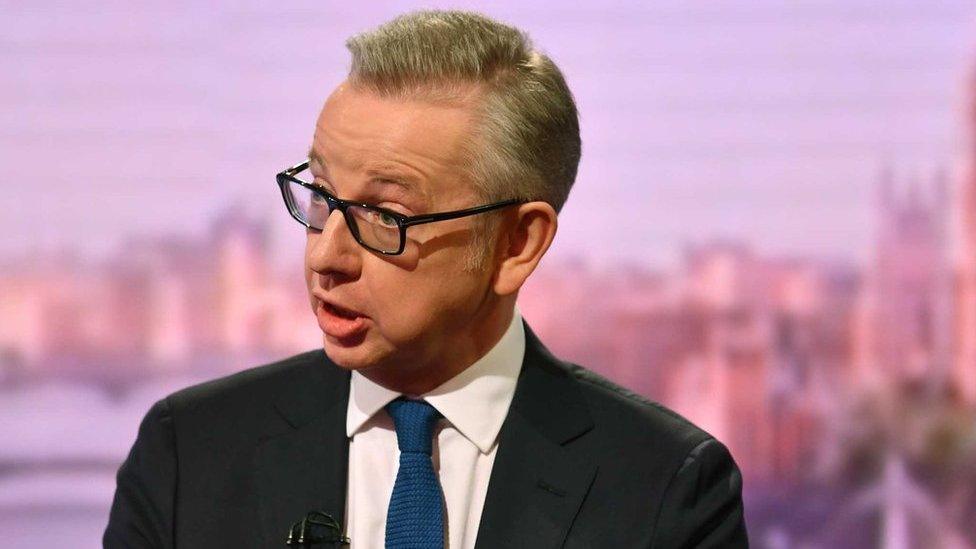
- Published7 June 2019
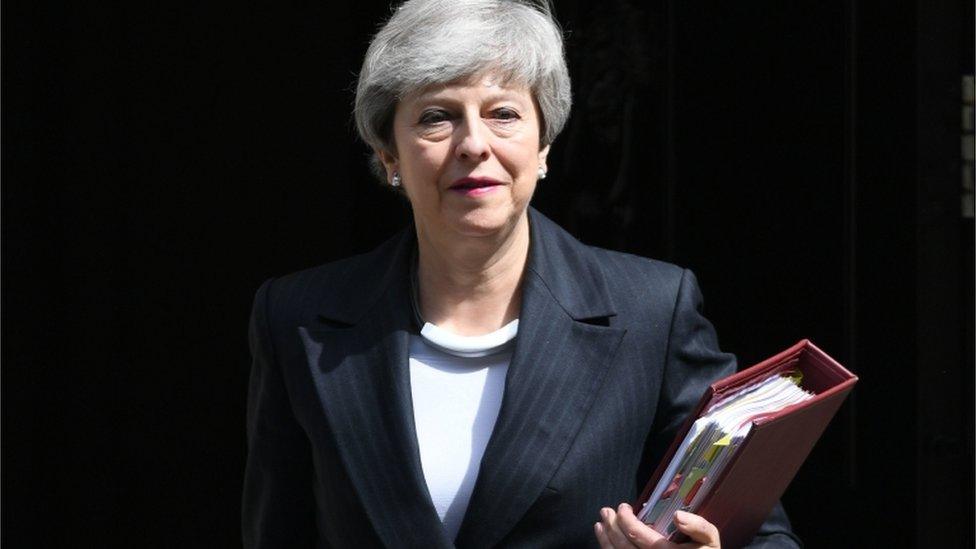
- Published18 July 2019
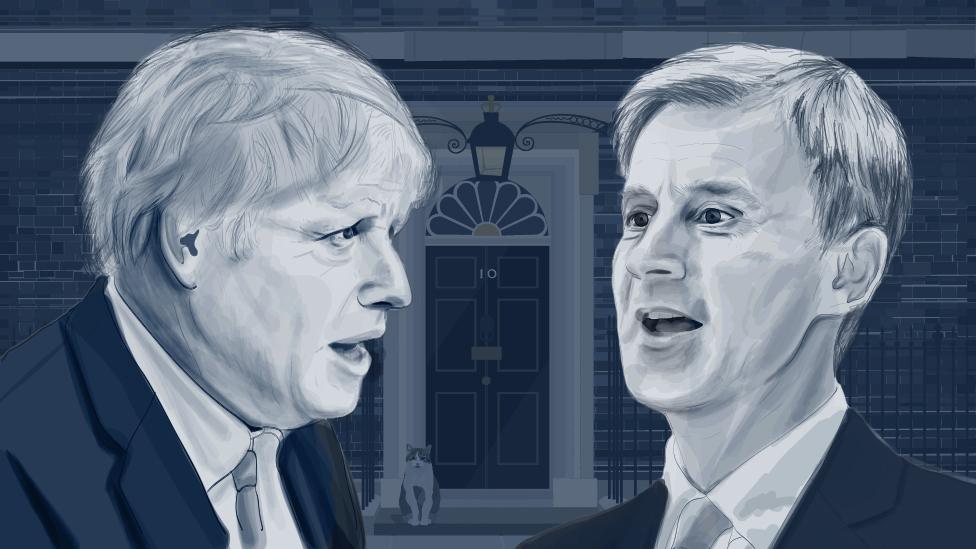
- Published26 June 2017
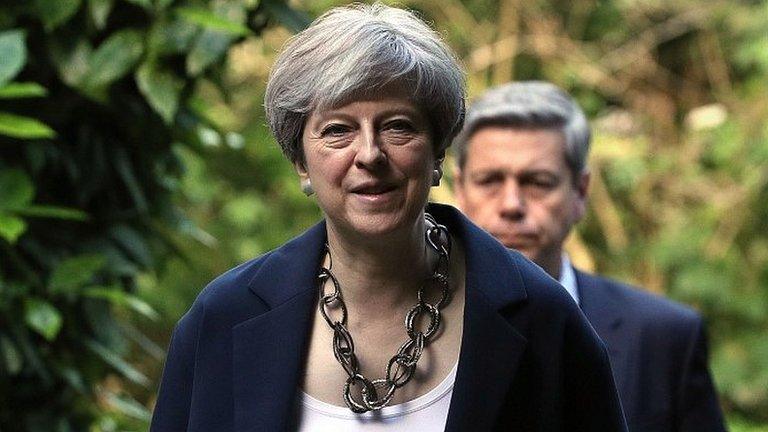
- Published11 September 2017
